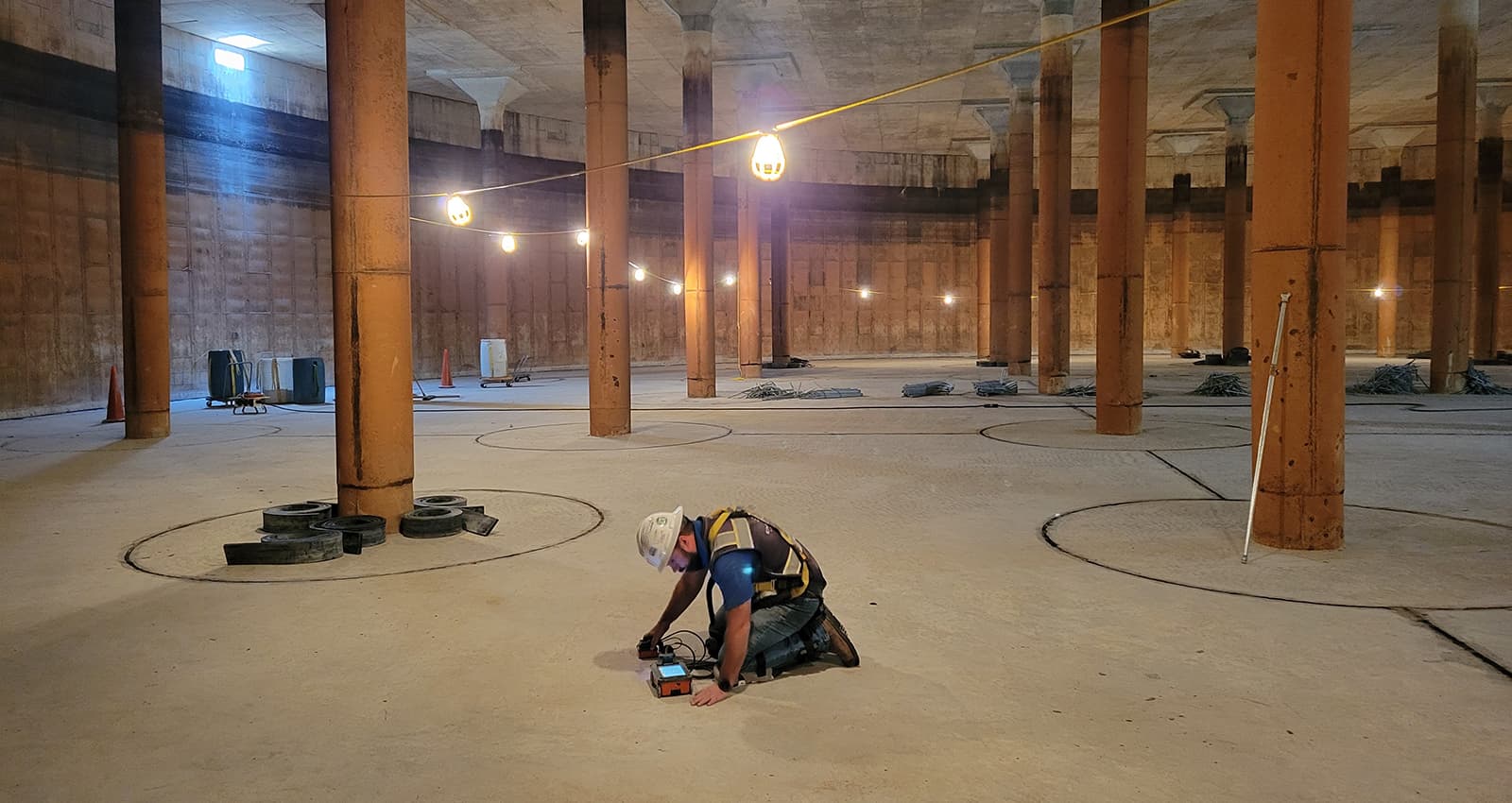
Someone just told you that you need to get your concrete scanned. Now what?
Concrete may need to be scanned for a variety of reasons. Most commonly contractors will want a scan done on a concrete slab prior to cutting, coring, or drilling into it to ensure that they don’t hit anything that could cause damage to their equipment or slab itself. They also don’t want to hit anything that may result in them having to make expensive repairs, such as hitting a water or sewage line. Another reason you may need to have your concrete scanned is for the purpose of rebar verification. A structural engineer or architect may also require a concrete scan. This might need to be done prior to producing plans for a renovation to ensure that a concrete slab had rebar properly installed for structural stability.
When you do an online search for concrete scanning services near me, you will likely get a number of results—especially if you live anywhere near a metropolitan area of a decent size. Some of the results you receive may be from concrete companies that offer concrete scanning services in addition to their main service of pouring concrete. Companies like this will likely offer concrete scans using ground penetrating radar (GPR).
If you just need rebar verification or need to locate embedded utility lines, concrete scanning services that offer only ground penetrating radar scanning may be sufficient. However, if you need a holistic concrete structural analysis, you will need to look for a company that uses a variety of nondestructive tools, including GPR, to evaluate what is happening beneath the concrete’s surface. A full-service concrete scanning service can help you detect things like voids within the concrete as well as provide you with a map of the cracks within the slab.
Even if a concrete scan using ground penetrating radar will provide you with all of the information you need, it can still be a good idea to work with a specialty scanning company. Companies like this will be more likely to have highly trained and experienced scanning professionals on their team who can give you a more accurate interpretation of the results produced by a GPR scan. According to Southern California-based company Enhanced Scanning, “Having good underground scanning equipment and knowing how to use it properly are two very different things. While the actual operation of a GPR scanning device isn’t all that complicated, the interpretation of the data it puts out is actually quite complex.”
At the end of the day, you should prioritize working with a company that will provide you with the most accurate results possible—even if it means spending a bit more money that you wanted to.







